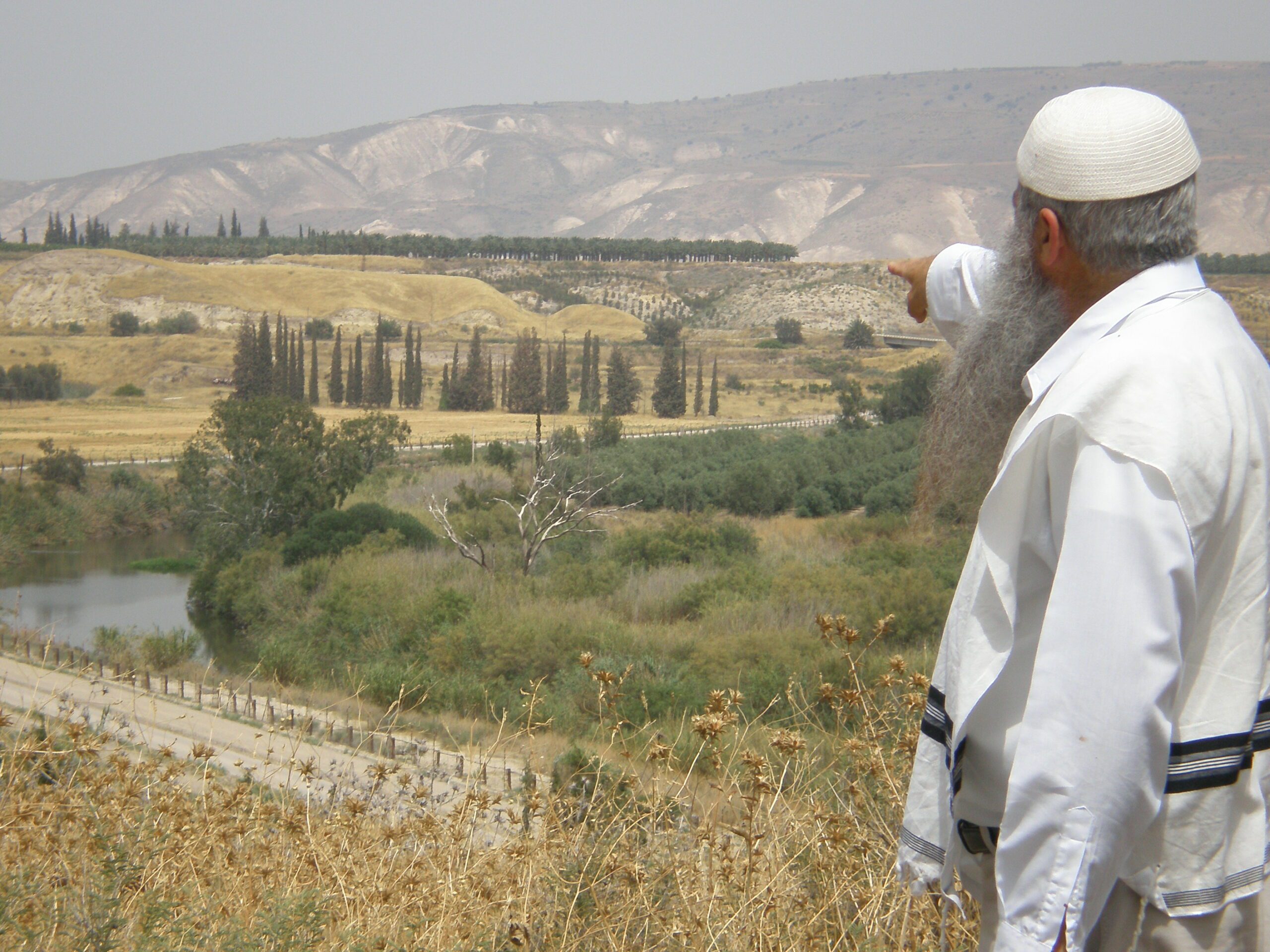Ashkenazim/Sefardim: Melachim 2 7:3-20
Yemenite Jews: Melachim 2 7 1-20, 13:23
A Strange River – by HaRav Shlomo Aviner
“Na’aman, commander of the army of the king of Aram, was a great man in the sight of his master and highly regarded, because through him Hashem had given victory to Aram. He was a valiant soldier, but he had leprosy” (Melachim 2 7:1). He took a young Jewish woman from Israel as a captive, and she served his wife, and the young woman succeeded in convincing the wife that it was worthwhile for her husband to ask the prophet Elisha for help. Armed with a letter of recommendation from the king of Aram, along with generous amounts of silver and gold, Na’aman turned to the King of Israel for healing. The King, who feared a trap, reacted with surprise: “Am I G-d that I kill and bring back to life? Why does he send someone to me to be cured of his Tzara’at? See how he is trying to cause a fight with me” (ibid. v. 7)
Word of the incident reached Elisha, who immediately accepted the mission: “Elisha sent a messenger to say to Na’aman: Go, wash yourself seven times in the Jordan, and your flesh will be restored and you will be pure” (ibid. v. 10). Na’aman was greatly offended, since he was expecting the prophet to greet him, and arrange an impressive prayer ceremony to Hashem, including a personal intervention over his illness. His anger does seem somewhat warranted: “I thought that he would surely come out to me and stand and call out in the name of Hashem, his G-d, wave his hand over the spot and cure me of Tzara’at” (ibid. v. 11)
But Elisha decided that he was going to give this arrogant man, full of self-importance, a lesson in humility. After all, the illness of “Tzara’at” is not what is referred to today as leprosy, but a spiritual ailment, which comes as a punishment for spiritual failings, such as arrogance (Arachin 15b). The first verse clearly points this out: Because he considered himself a valiant warrior, he was stricken with Tzara’at (Bamidbar Rabbah 7:5
According to our Sages, Na’aman was the one who unknowingly shot an arrow at Achav, King of Israel, and killed him (Midrash Socher Tov, Tehillim 60). But he did not recognize that Hashem directed his hand, nor did he understand the greatness of the Nation of Israel (Tanchuma Tazria and Yalkut Shimoni 127), he therefore equated the Jordan River with the rivers in his land. He lacked the ability to distinguish between Israel and the other nations as well as the Holy Land and his land.
What interests us is why Na’aman believed in Elisha and his ability to heal. In general, the other nations are ready to accept religious ideas which fit into universal logic, such as the power of prayer, but they are unable to understand that there is holiness in the Land, in the Nation and in the river. The Gemara relates that in the future days, on the great day of judgment, the nations will complain to Hashem, that if they would have received the mitzvot, they would have observed them. In order to test them, Hashem will give them a mitzvah – to build a sukkah and dwell in it. But the summer sun will be so intense that they will immediately leave and kick the Sukkah on the way out (Avodah Zarah 3b).
But why will Hashem test them with this mitzvah in particular? According to Maran HaRav Kook, the nations are willing to accept religion when the commandments seem logical to them, but the secret of the sukkah seems strange to them, and they are unwilling to subject themselves to an act which seems irrational (Torat Ha-Moadim of HaRav Shlomo Goren, p. 113). Similarly, immersion in the waters of the Jordan seems strange and illogical, but this understanding does not take into account the possibility of holiness beyond nature.
Na’aman was therefore furious and returned to his land. His servant tried to intervene: “My father, if the prophet had told you a great thing, would you not have done it? And so too when he tells you, ‘Wash and be purified'” (ibid. v. 13). The words of encouragement worked: “He went down and immersed in the Jordan seven times, following the word of the man of G-d, and his flesh was restored and became pure like that of a young boy” (ibid. v. 14). This caused a change in the heart of the great general, who stood before the prophet and proclaimed: “Now I know that there is no G-d in all the world except in Israel” (ibid. v. 15). According to our Sages, he became a righteous gentile (Gittin 57b)
One who immerses in the waters of the Jordan with the belief in Hashem and the truth of His Torah is as if he becomes an inseparable part of the holiness of Eretz Yisrael. This river possessed the power to transform Na’aman into a repentant person, committed to observing the seven mitzvot incumbent upon non-Jews. He understood the holiness of the dirt of Eretz Yisrael and took some of it to build an altar to Hashem (ibid. v. 17)
A day will come, we believe, when all of the nations of the world will recognize that the Divine Presence dwells among the Nation of Israel in the Land of Israel.






